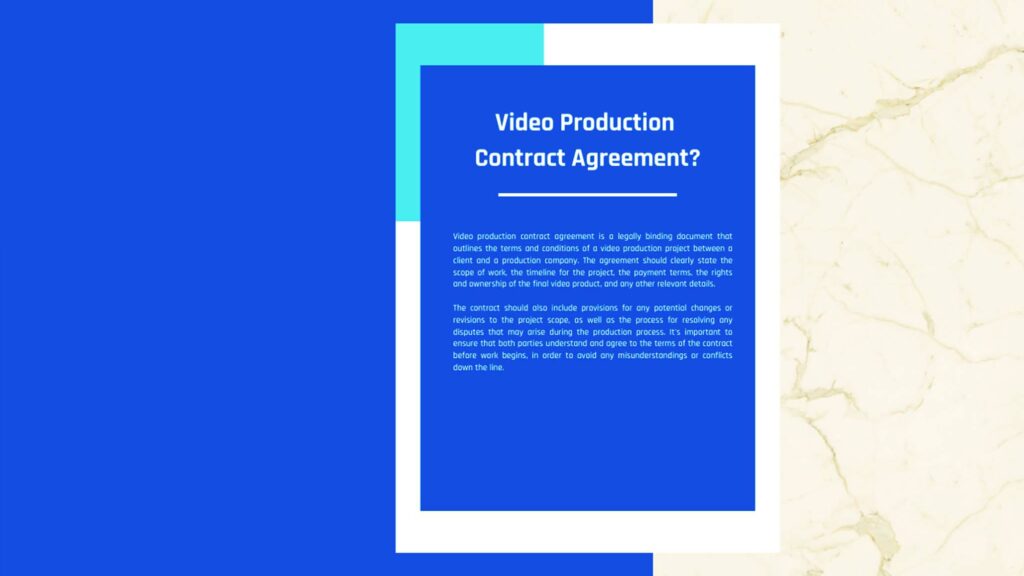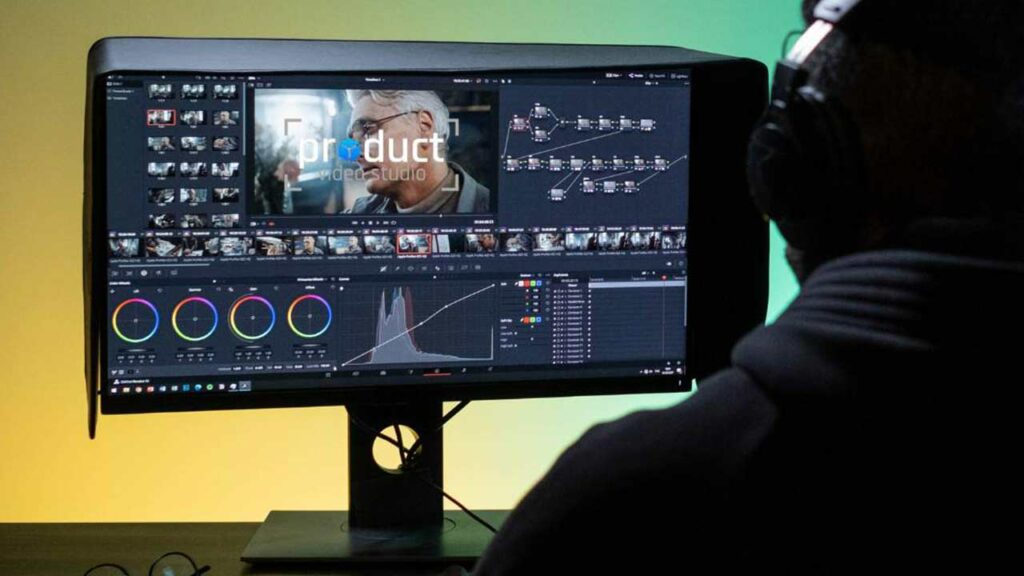There’s no denying that as filmmakers and videographers, they pour their hearts and souls into creating captivating visual stories. However, when it comes to financing and marketing these videos, having a solid video production agreement is just as important as having the right equipment.
Let’s be honest, these agreements are probably the last thing on our minds! People are more into the fun and creative stuff that mainly goes into the making of the video. However, having a solid video production agreement is essential to ensure that everyone involved in the project is on the same page and in the end you can have a successful project So, grab your pens and paper because we’re about to dive into the world of contract 101: How to craft a solid video production agreement.
Why do you Need a Video Production Contract Agreement?
While it may not be the most exciting topic, it is crucial to discuss the drafting of video production contracts for financing and marketing your films. This is a necessary process when working with videography clients. There are multiple reasons why you need a video production contract agreement and they are:
- Protect Your Work: This is one of the most critical reasons why you need a video production contract. As a filmmaker or video production agency, they put a lot of hard work and effort into making a video, and it’s only natural to want to safeguard the work. A contract plays a crucial role in protecting your creative work by clearly defining who owns the rights to the final product and how it will be used.
- Set Clear Expectations: A contract outlines the scope of the project, including the timeline, deliverables, and payment terms. This ensures that everyone involved in the project is on the same page and knows what to expect.
- Maintain Professional Credibility: Having a professional contract in place shows your clients that you take your work seriously and that you are committed to delivering high-quality results.

Contracting 101: How to Craft a Solid Video Production Agreement
Let’s discover how to create a strong video production agreement that protects your work and sets you up for success while maintaining a great relationship with your clients.
1. Watermark
Now, this is basic and crucial. Incorporating a watermark in every video you send to the client serves as a visual indicator that you own the rights to the video until full payment is received.
Your contract should contain a clause that states “Every draft that I send to you will have a watermark until considerations are made or the necessary payments are done.” This clause will make it easier for your clients to understand. This clause helps prevent any confusion or disagreements about ownership or usage rights and can ultimately protect your creative work. It’s also essential to note that anything you send to the client for review during the project should contain your watermark. The watermarks also ensure that the client doesn’t use or distribute the video without your permission. Moreover, they won’t receive a watermark-free version until full payment is made.

2. Specify All Parties: Client and Producer
It’s important to specify all party’s roles and authorization. Establishing clear roles for each party involved helps to protect both the video production company and its client’s businesses. This involves determining the Client and Producer labels and ensuring that both parties have the authority in the agreement. Ultimately, a clear and concise contract can set the tone for a successful project and protect all parties involved.
3. Scope of Work
The video production contract is a critical part of any project, as it encompasses multiple aspects of the process, from script, and storyboarding to compiling the final video. It’s important to specify the services that the production company will provide to the client, that includes production notes, music, creative supervision, and clearances, as well as the materials to be used and the timeline for completion.
To avoid potential conflicts, it’s crucial to outline the scope of the project in detail, including all discussions and agreements made with the client, such as the number of script revisions. Your contract should cover all areas of the production, including the shooting location, personnel involved, duration of work, type of media to be delivered, required equipment, and delivery date.
Additionally, it’s essential to address ownership of materials, payment terms, contingencies for failures or delays, and the consequences of early termination. By ensuring that your contract is comprehensive and precise, you can minimize misunderstandings and protect all parties involved in the project.
4. Time, Location, and Deadline
When it comes to video production, it’s important to account for potential delays and set clear deadlines in your contract. Specify how many extra shooting days are allowed, as well as outline key milestones and due dates for production fees, access to materials, and more. Without these details, unforeseen delays could impact your ability to deliver on time.
Additionally, it’s important to be clear about the number of shooting locations and any associated logistical requirements, as clients may not fully understand the complexities of video production.

5. Payment Process
Coming to another crucial aspect of a solid video production agreement is stating the payment terms. If your client plans to pay with a credit card, you should inform them of their options, such as PayPal, Square, or whatever method suits both the party. You need to specify whether there will be any refunds or partial refunds. You need to make sure the client understand and meet your expectation properly.
Depending on your task complexity or the company policy you can state whether you expect to have payment in full before the work starts or whether you need to have half of the payment made upon production completion. For example, larger projects tend to require half of the payment made on the first day of shooting. Hence, be sure to discuss and agree on payment terms with your client and include them in the contract. For smaller projects, you may have more flexibility in payment terms.
6. Confidentiality
When a video producer and a client go into an agreement, they are aware that there may be certain aspects of the project that need to be kept confidential. To ensure that all parties involved understand the importance of confidentiality, get a separate section in the contract that specifically addresses the confidentiality issue.
For example, the clause can state that all scripts, storyboards, and other pre-production materials should be kept confidential and only shared with those directly involved in the project. The clause can prohibit the producer or director from discussing the project with anyone outside of the production team or from using any of the confidential information for personal gain.

7. Cancellation Clause and Termination
As mentioned earlier, the primary motive for crafting a video production agreement is to protect the rights of both parties, from any unforeseen circumstances that may arise that include termination of the agreement. This clause should detail who is responsible for finding a replacement video producer in case of cancellation and any applicable refunds or fees. This is especially important as even the best video producers can sometimes overbook themselves, leaving clients in a difficult position.
Additionally, both parties must agree on contract termination, with specific dates or payment completion as options. Clarify any reasons for early termination, such as written notice or broken agreements, to prevent misunderstandings.
Wrapping Up
While creating a video production agreement may not be the most fun or creative part of the process, it’s essential both for the video producer and the client for setting clear expectations and professional credibility.
By addressing these areas in detail and creating a comprehensive contract, you can minimize any conflict, and protect the rights of all parties involved. So, take the time to create a solid video production agreement that meets your needs and sets you up for success.






